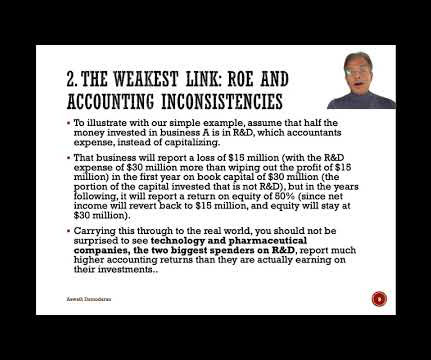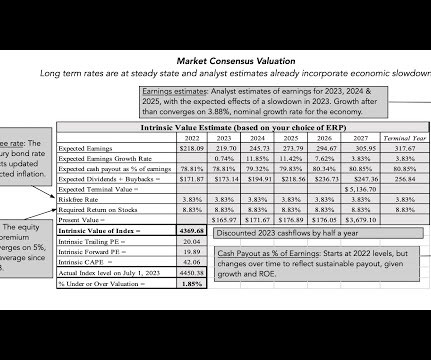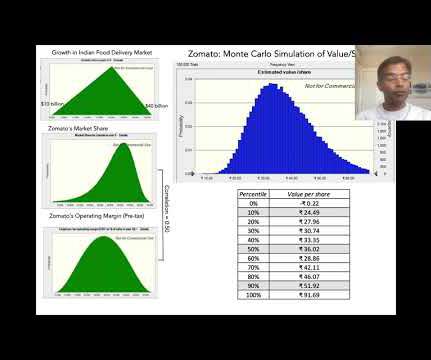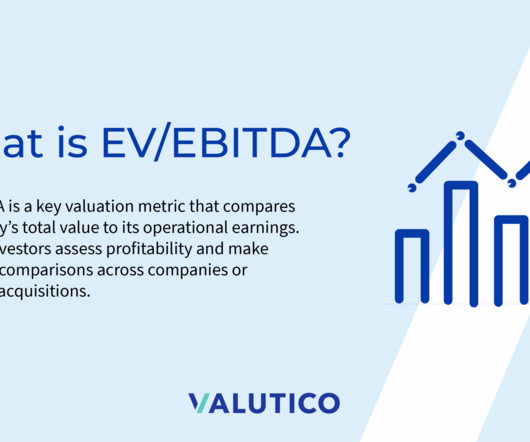Dark Accounting Matter
Harvard Corporate Governance
JULY 9, 2024
The S&P 500 currently trades at a price to book value of 4.2, suggesting that book value accounts for less than 20% of the S&P 500’s market value. more…)

Harvard Corporate Governance
JULY 9, 2024
The S&P 500 currently trades at a price to book value of 4.2, suggesting that book value accounts for less than 20% of the S&P 500’s market value. more…)

Musings on Markets
FEBRUARY 18, 2025
The second was a comment that I made on a LinkedIn post that had built on my implied equity premium approach to the Indian market but had run into a roadblock because of an assumption that, in an efficient market, the return on equity would equate to the cost of equity.
This site is protected by reCAPTCHA and the Google Privacy Policy and Terms of Service apply.

IVSC
FEBRUARY 7, 2022
Jeremy chairs the Corporate Reporting Users’ Forum (CRUF) UK and co-chairs the Capital Markets Advisory Committee (CMAC), which is one of the advisory groups of the International Financial Report Standards (IFRS) Foundation. ” The value of a smile. In the past, market valuations often mirrored the reported balance sheet.

Musings on Markets
JULY 17, 2023
I am not a market prognosticator for a simple reason. I am just not good at it, and the first six months of 2023 illustrate why market timing is often the impossible dream, something that every investor aspires to be successful at, but very few succeed on a consistent basis.

Musings on Markets
JULY 22, 2021
Zomato, an Indian online food-delivery company, was opened up to public market investors on July 14, 2021, and its market debut is being watched for clues by a number of other online ventures in India, waiting in the wings to go public.

Sun Acquisitions
OCTOBER 13, 2023
Valuation techniques in M&A involve a comprehensive assessment of financial, operational, and market factors. Market-Based Valuation One widely used valuation technique in M&A is market-based valuation. Asset-Based Valuation Asset-based valuation determines the worth of a company by considering its net asset value (NAV).

Valutico
MAY 19, 2025
The core idea behind relative valuation is to estimate a company’s value by comparing it to similar companies based on how the market prices their financial metrics. The multiple is calculated as Enterprise Value (EV) divided by EBITDA. EV/EBITDA is a widely used multiple in this relative valuation approach.
Let's personalize your content